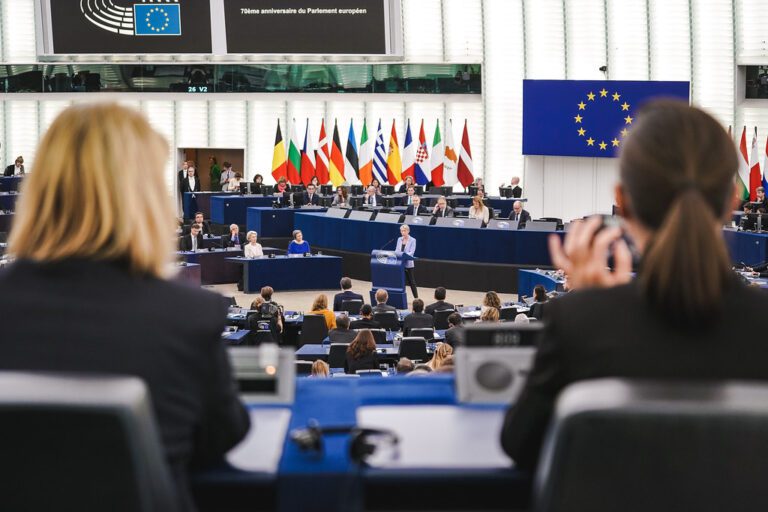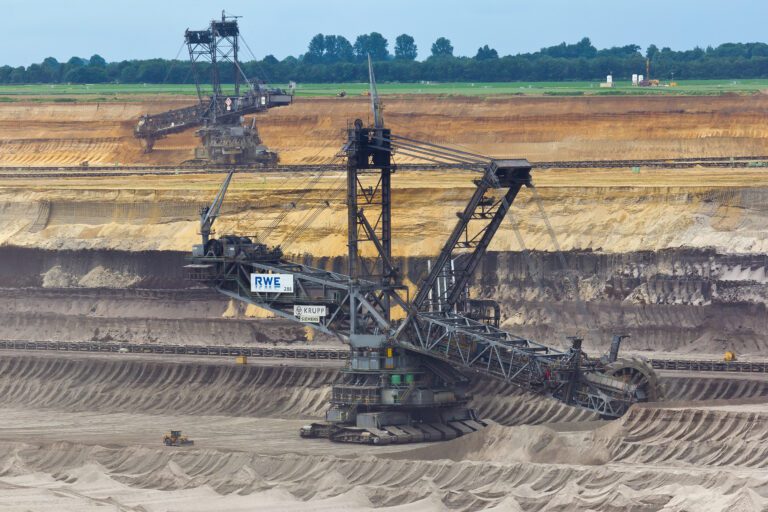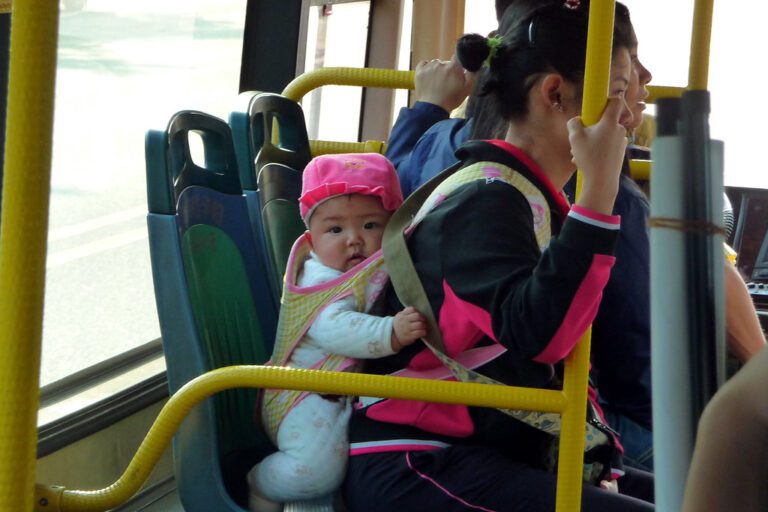Will the Dutch Return to the European Front on China After the Elections?

Today, on October 29, the Netherlands votes in Lower House elections that will determine the composition of its future government. In June this year, the populist coalition under former security official Dick Schoof collapsed, lasting just under twelve months in office. The key question now is whether a new coalition will prove more stable and return the Netherlands to its previous role as a quiet leader in the EU’s China policy.
Although the Netherlands has continued to honor its previous commitments as a major supporter of Ukraine, the political turbulence of the last year and a half has reduced its influence in Brussels. Following a period of active transition under previous coalitions, a relative calm settled over Dutch China policy. Action returned with measures against Nexperia, demonstrating that Dutch semiconductor policy affects not only German suppliers but also automotive manufacturers and customers across Europe. Just as the EU faces major decisions on its China policy – especially in relation to supply chains and economic security – The Hague may once again return to the forefront.
Rutte’s Transition
Long-serving Prime Minister Mark Rutte (2010-2024) oversaw a series of important developments in the country’s approach to China. Leader of the conservative-liberal VVD party (member of the Renew Europe group in the European Parliament), Rutte began the first of his four coalition governments focused on domestic policy, inheriting a legacy of economic cooperation with Beijing. However, by the time he took over as NATO Secretary-General in 2024, the Netherlands had made a clear shift – emerging as one of the EU’s leaders on China.
A new China strategy was launched in 2019 with the policy note “The Netherlands-China: A New Balance,” marking the culmination of the transition toward a more security-centered approach. In the Dutch political system, such documents serve as important signals of a new direction to the country’s relatively autonomous civil service and broader public sector. The geopolitical challenges posed by Beijing were further highlighted by the 2020 Indo-Pacific guidelines.
In the realm of security, The Hague took several symbolically significant steps. In 2021, the HNLMS Evertsen joined the British Royal Navy on a tour of the Indo-Pacific. The following year, Dutch Defense Minister Kajsa Ollongren (D66/Renew Europe) pledged at the 2022 Shangri-La Dialogue in Singapore that such naval missions would become regular. Dutch intelligence agencies also began speaking out more openly: in 2022, the civilian AIVD’s annual report publicly called China the “greatest threat” to economic security, with Chinese cyberattacks now being regularly attributed.
Globally, the Netherlands drew attention for its approach to economic security. While US pressure was vital to this changing posture, The Hague has developed its own approach, though institutionally somewhat fragmented. World-leading semiconductor equipment manufacturer ASML was effectively barred from selling its most advanced machines to China as early as 2019. Following talks with Washington, the Netherlands expanded export controls further in 2023. Knowledge security (2022) and economic security (2023) contact points were also established to steer without government coercion.
Within the EU, The Hague has generally adopted a pragmatic and supportive position in line with the Commission’s approach to China. It supported standing up for Lithuania after Beijing’s coercion in 2021 and accepted Ursula von der Leyen’s de-risking approach. The Netherlands also joined the majority of EU member states voting in favor of EU tariffs on Chinese EVs in 2024. Yet public pronouncements by ministers have been rare, and the government continued to claim a “country-agnostic” approach when protecting Dutch national interests.
Domestic Preoccupations
Prime Minister Dick Schoof (2024-present) spent much of his brief tenure managing a fractious coalition. The largest of the four mostly inexperienced governing parties was Geert Wilders’ nativist PVV (member of the Patriots for Europe group in the European Parliament). Wilders himself remained in the Lower House and focused primarily on migration, leaving China and other foreign policy matters largely unattended. This focus on domestic issues coincided with the start of the second Trump administration, which disrupted US-Dutch cooperation on China-related issues.
The Netherlands lost its position as a leading EU member state just as China’s industrial overcapacity became an urgent matter for Europe. Rutte had become an important player in the EU through experience and seniority. Schoof – a former senior bureaucrat with no political party – lacked both. Without party backing, he was excluded from the informal gatherings of European political families preceding major summits, and his weak position within a fractured and unproductive cabinet led to his further marginalization.
At the same time, policy initiatives from previous governments remained in motion. Mandatory screening of researchers handling sensitive knowledge continues to go ahead, despite academic criticism. The Ministry of Economic Affairs launched an EU-wide Semicon Alliance. Dutch intelligence agencies continue calling out Chinese cyber activities in public, and Beijing has continued to attach importance to the Netherlands, as reflected in my database of official visitor data.
New momentum appeared shortly before the elections. In early October 2025, caretaker Minister of Economic Affairs Vincent Karremans (VVD/Renew) announced the government’s decision to take action against Chinese-owned Nexperia. This renewed assertiveness and return to visible action, as the electoral campaign is underway, could prompt a reaction from Beijing tougher than the one following the ASML measures.
Return to Action?
Two key questions will shape the post-election landscape. First, will the outcome allow for a stable coalition of constructive parties that could return the Netherlands to its formerly active role in shaping EU China policy? Second, how will Beijing respond if The Hague resumes decisive action? Dutch support for Ukraine was never seriously reduced, but there are some policy decisions on China that require renewed political impetus.
The prime minister’s role has become more important in the Dutch political system over the Rutte years, in part due to the centrality of the European Council. Geert Wilders’ party is on track to lose seats but remain the largest party. Dutch governments are always coalitions of multiple parties, and most parties have ruled out cooperation with Wilders following the past year’s coalition problems. Therefore, unless Wilders succeeds in breaking precedent with a minority coalition, he will most likely not return to power.
The three main contenders to succeed Schoof are the European Commission’s former Green Deal Vice President Frans Timmermans (GL-PvdA/Greens-S&D), former Climate Minister Rob Jetten (D66/Renew), and Christian Democratic legislator Henri Bontebal (CDA/EPP). All three parties are likely to feature in any future majority coalition. Yet the fractured state of the Dutch political landscape complicates the situation, as it is uncertain whether a reasonable number of coalition partners is achievable. In that case, key portfolios such as foreign affairs, finance, and economic affairs are likely to be granted to junior partners. The prime minister will have to share China policy.
China has not featured prominently in the election campaign. That reflects public sentiment. According to the Clingendael Foreign Affairs Barometer, although the Dutch public thinks about China-related challenges, these are not its top concerns. Nonetheless, major parties’ programs frame China primarily as an economic threat. Timmermans’ party calls for reducing dependence on China in critical raw materials and for measures against unfair trade practices by both Beijing and Washington. Bontebal’s CDA emphasizes limiting strategic dependencies and protecting Dutch companies from export controls.
The past few years have also been characterized by an activist parliament when it comes to China. Members of the Inter-Parliamentary Alliance on China (IPAC) have played a notable role in this change, including Defense Minister Ruben Brekelmans (VVD/Renew), MPs Jan Paternotte (D66/Renew), and Derk Boswijk (CDA/EPP). IPAC membership now also includes Tom van der Lee and Kati Piri (both GL-PvdA/Greens-S&D) and Eric van der Burg (VVD/Renew), thereby covering the entire middle of the political spectrum.
Looking Ahead
Based on the pre-election polls, many of these figures are likely to play a role in the next government – that is, if a majority coalition is possible. In this light, it is important to note that Boswijk and Paternotte submitted a note calling for a new Dutch China strategy, moving beyond the EU’s 2019 triptych to categorize China solely as a systemic rival. Their note advocated for reducing strategic dependencies, supporting Taiwan, and standing up for human rights. While the caretaker government dismissed the need for a new strategy in a reply listing what has already been done since 2019, a new government might decide differently.
Given the current state of the US, the Netherlands will rely more on the EU to deal with the challenges posed by China. There are several areas in which the Dutch leadership could push for stronger European coordination: Chinese investments, such as those in the Port of Rotterdam and the tech sector, Beijing’s support for Russia and its consequences, and supply chain resilience in rare earths and semiconductors. Should the IPAC-linked politicians take on senior roles in the new government, this could also lead The Hague to deepen cooperation with Central and Eastern European countries seeking a firmer collective stance on all these issues.
Written by
Sense Hofstede
sehofDr Sense Hofstede is an expert in the influence of the Chinese party-state on Beijing’s foreign policy, cross-Strait politics, and the international relations of the Indo-Pacific. He has completed his PhD in Comparative Asian Studies at the National University of Singapore and has previously worked as a Lecturer at Leiden University and a Research Fellow at the Clingendael Institute.


